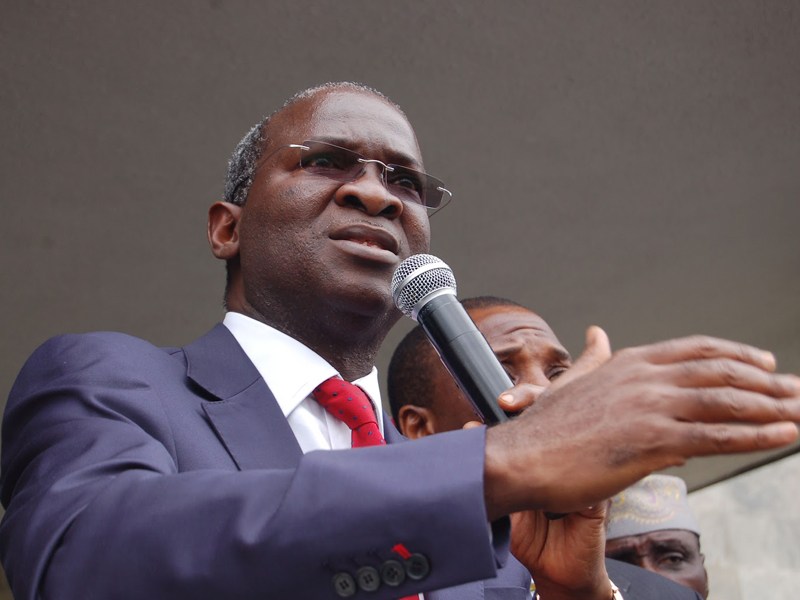- FG Bans Foreigners from Designing Security Projects
The federal government has declared that foreign professionals will no longer be engaged in the execution of projects involving national security.
The Minister of Power, Works and Housing, Mr. Babatunde Raji Fashola, made the announcement in Abuja yesterday, when he declared open the 2019 Architects Colloquium organised by the Architects Registration Council of Nigeria (ARCON).
Fashola who was represented by the Head of Power Public Private Partnership, Ministry of Power, Mrs Eucharia Alozie, said that government was now placing premium on the use of indigenous professionals and firms to execute projects where national security is at stake.
He said foreign experts will only be engaged when their Nigerian counterparts are not available, adding even at that, Nigerian professionals will be assigned to understudy them.
Fashola who decried the spate of collapsed buildings in the country as national embarrassment, tasked architects to lead the debate and give guidance to government at all levels for the best way forward for the housing and built industry.
He tasked ARCON to tutor its members to design houses in line with the cultural and religious sentiments of Nigerians and reflect the changing contemporary social and technical climates in the designs.
The minister also disclosed that government is earnestly awaiting the implementation of ARCON concept to tag projects with registration numbers while also calling on town planning authority to insist on the seal of a licensed architect before approving any project drawing.
In his welcome address, the President of ARCON, Dipo Ajayi, said the colloquium afforded the body opportunity to deliberate on issues affecting the nation and make robust contributions to Nigeria’s national development agenda.
Ajayi stressed that the council instituted the ARCON Project Registration Number System (APRN) to ensure that projects are thoroughly done by properly constituted teams of building professionals. He also added that the Council will collaborate with all seven professions in the built environment.
Ekiti State Governor, Dr. Kayode Fayemi who was the guest of honour at the colloquium, tasked ARCON to sanitise the industry by applying sanctions like withdrawal of the licences of erring practitioners, in order to restore public confidence in the profession.
He also tasked architects to incorporate the use of local materials like bricks in building design rather than overly concentrating on sand bricks.

 Forex3 weeks ago
Forex3 weeks ago
 Naira3 weeks ago
Naira3 weeks ago
 Billionaire Watch2 weeks ago
Billionaire Watch2 weeks ago


 Naira3 weeks ago
Naira3 weeks ago




 Naira2 weeks ago
Naira2 weeks ago




 Naira1 week ago
Naira1 week ago




 Naira4 weeks ago
Naira4 weeks ago
 Banking Sector4 weeks ago
Banking Sector4 weeks ago
























